Atlas Lions Train in Maâmora Ahead of Sold-Out Mozambique Friendly in Tangier
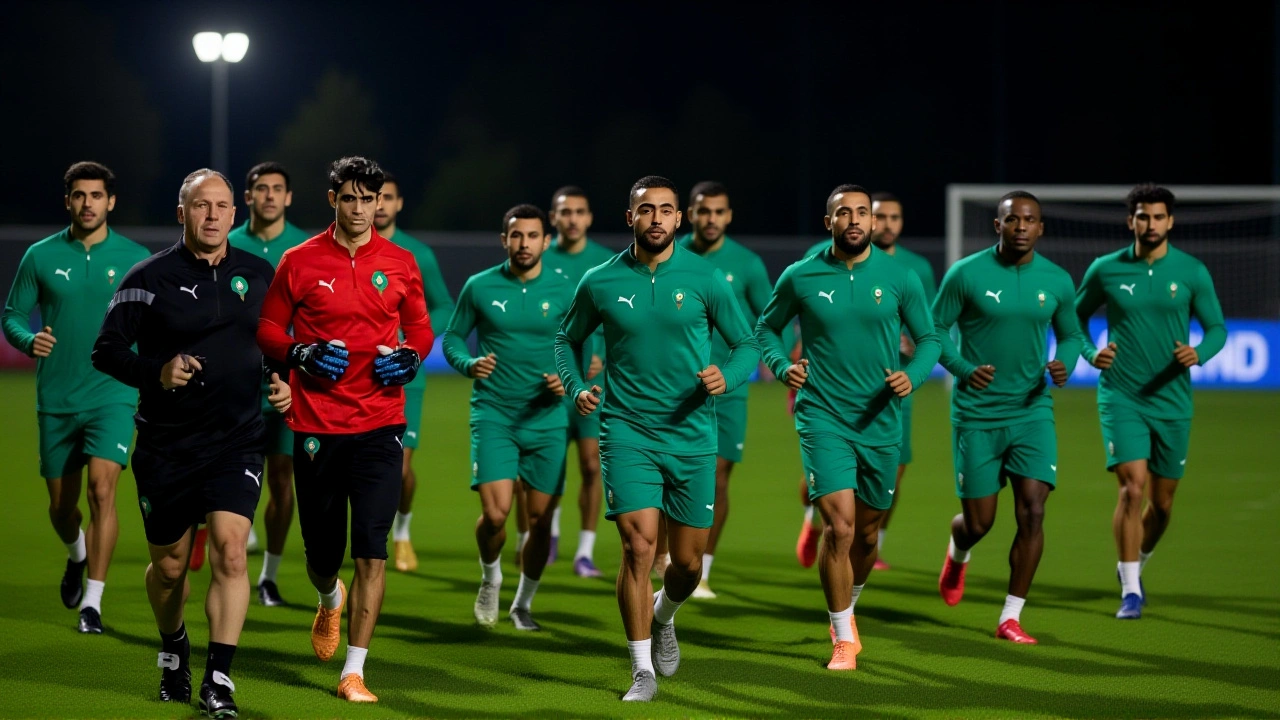
The Atlas Lions kicked off their final push for the Africa Cup of Nations Morocco 2025 with their first training session at the Maâmora facility, a quiet but vital hub for Moroccan football tucked away in the countryside. The session, held just days before their sold-out friendly against the Mozambique national football team, wasn’t flashy — no fireworks, no fanfare. But for the players and staff, it was the quiet before the storm. By Thursday, November 13, 2025, the team had moved to the Grand Stadium of Tangier, where 35,000 tickets vanished faster than a corner kick in the rain. The match against Mozambique — scheduled for 8:00 PM GMT+1 that Friday — wasn’t just a tune-up. It was a statement.
A Camp Built for Pressure
Head coach Walid Regragui, 49, didn’t come back to the national team to play it safe. Since taking over in August 2022, he’s turned the Atlas Lions into Africa’s most unpredictable force — a team that won the 2022 World Cup quarterfinals on grit, not glamour. Now, with Morocco hosting the Africa Cup of Nations Morocco 2025, the pressure is mounting. This training camp was designed like a military operation: two phases, zero distractions. Maâmora came first — secluded, controlled, no cameras. Then, Tangier. Open to the public, but only for 15 minutes. After that? Silence."The program set by the technical staff," reported YsScores, "required the session to continue away from the cameras, in line with the requirements for technical and tactical preparation." That’s not secrecy for secrecy’s sake. It’s discipline. Regragui’s staff didn’t want the world watching their set pieces, their pressing triggers, or who was fit and who wasn’t. They needed to see how the players reacted under fatigue, how the new midfielders clicked, whether the aging defenders still had that snap in their tackles. The goal, as stated outright, was to "assess the physical and technical readiness of the players and to identify the features of the starting lineup."
The Tangier Showdown
Thursday’s open training at the Grand Stadium of Tangier drew hundreds — fans clutching scarves, kids perched on fences, journalists with notepads and long lenses. The air smelled of damp grass and diesel from the team buses. Players jogged in tight circles, passed balls with surgical precision, and drilled headers under the late afternoon sun. For 15 minutes, the world got a peek. Then the gates closed. The media was politely escorted out. The players stayed behind.Why? Because this isn’t just another friendly. It’s the first real test in front of a home crowd since the World Cup. The Royal Moroccan Football Federation has spent years preparing for this tournament. They’ve upgraded stadiums, trained referees, and built fan engagement programs. And now? The stadiums are filling up. The Mozambique match sold out — 100% capacity. That’s rare for a non-competitive game. It means something. Moroccans aren’t just excited about the tournament. They’re hungry for it.
What Comes Next?
The Mozambique match is just the opener. The Uganda national football team is next — though no date, no time, no location has been announced. That’s intentional. Regragui’s team is playing a long game. They’re not just preparing for one match. They’re preparing for a tournament that could define a generation of Moroccan football. The squad list? Still secret. Injuries? Not disclosed. Tactics? Locked down. But the signs are clear: this isn’t a rehearsal. It’s a launch.What’s striking is how little the public knows — and how much they care. No star names were leaked. No injury updates. No social media leaks. And yet, the stadium sold out. That’s the power of identity. The Atlas Lions aren’t just a team. They’re a symbol. For a nation that’s watched its players thrive abroad — in Paris, Madrid, and London — this is their chance to see homegrown heroes carry the flag on home soil.
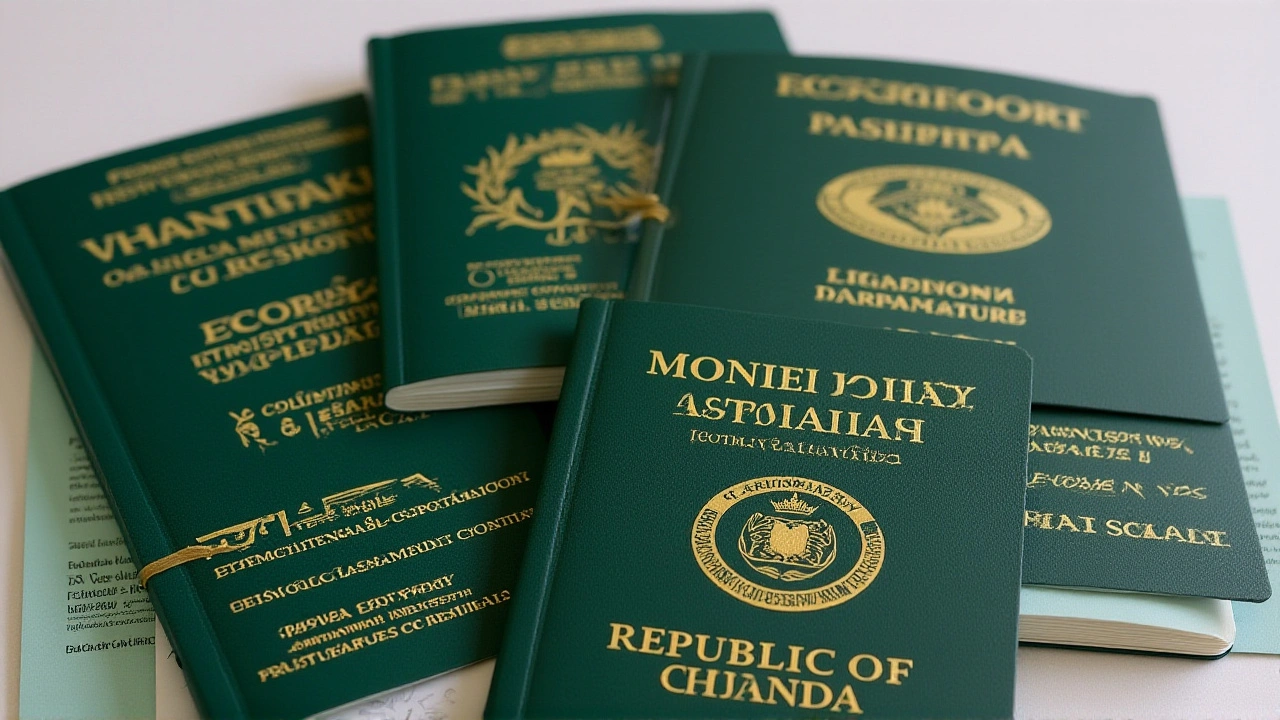
The Bigger Picture
The Africa Cup of Nations Morocco 2025 is more than a football tournament. It’s a national moment. The 35th edition of Africa’s premier competition, it’s the first time Morocco has hosted since 1988. Back then, they lost in the final. Now, they’re not just hosts — they’re contenders. And the way the team is preparing — with discipline, secrecy, and quiet intensity — suggests they mean to win it.For Regragui, this camp is about control. Control over the environment. Control over the message. Control over the players’ minds. He knows the world will be watching in January. He also knows that the best teams aren’t built in press conferences. They’re built in quiet rooms, on muddy pitches, under the watchful eyes of coaches who refuse to let distractions in.
Frequently Asked Questions
Why was media access limited to just 15 minutes during the final training session?
The technical staff restricted media access to protect tactical secrets and ensure focused preparation. With the Africa Cup of Nations just weeks away, revealing set pieces, defensive structures, or player fitness levels could give opponents an edge. The 15-minute window allowed for fan engagement and photo opportunities without compromising strategy.
How significant is a sold-out friendly match for Morocco’s national team?
It’s extraordinary. Friendly matches rarely sell out unless they carry emotional weight — like a World Cup qualifier or a home tournament opener. The fact that 35,000 tickets vanished for a match against Mozambique signals deep public investment in the Atlas Lions’ campaign. It’s a sign that fans believe this team can win the Africa Cup of Nations on home soil.
What’s the role of the Maâmora training facility in Morocco’s football strategy?
Maâmora serves as a secluded, high-performance training base away from media and public pressure. It’s where the team builds chemistry, refines tactics, and recovers without distractions. Unlike public stadiums, it allows coaches to test new formations and assess players under controlled conditions — a critical step before high-profile matches.
Why hasn’t the date for the Uganda friendly been announced yet?
The delay suggests the match is being used as a flexible contingency — possibly to assess player fitness after the Mozambique game or to replace a scheduled opponent if needed. It also keeps the focus on the immediate challenge: the home crowd in Tangier and the psychological edge of playing in front of fans before the Africa Cup begins.
How does Walid Regragui’s coaching style differ from previous Moroccan national team managers?
Unlike predecessors who relied heavily on European-based stars, Regragui blends domestic talent with overseas players, prioritizes pressing intensity, and demands tactical discipline. He’s also more secretive — limiting media access and avoiding public speculation. His approach mirrors his own playing days: pragmatic, resilient, and deeply rooted in Moroccan identity.
What impact could winning the Africa Cup of Nations 2025 have on Moroccan football?
A home victory would elevate Moroccan football to global prominence, likely triggering major investments in youth academies, infrastructure, and professional leagues. It would also cement the Atlas Lions as Africa’s new powerhouse — following in the footsteps of Egypt and Cameroon — and inspire a new generation of players who see themselves wearing the red-and-green jersey on the continent’s biggest stage.

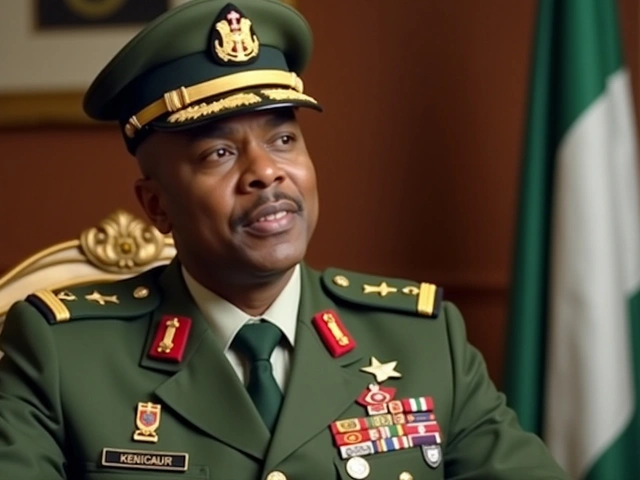
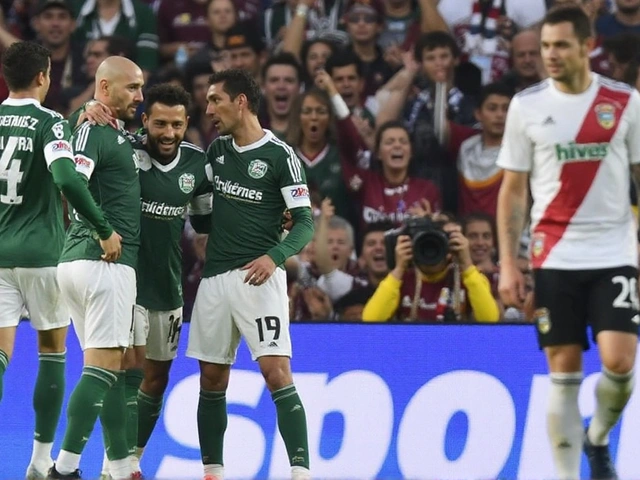
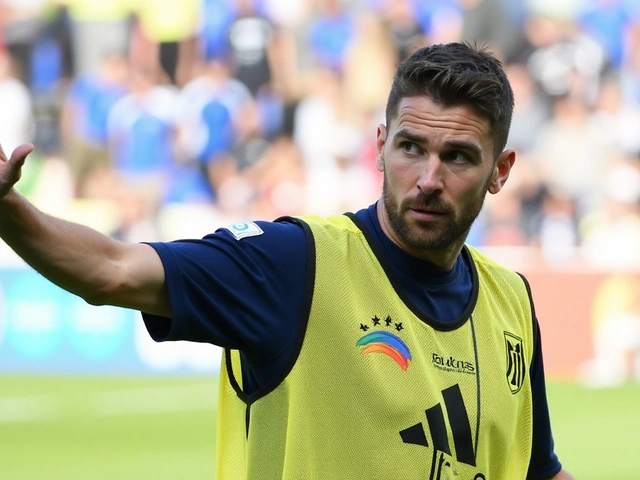
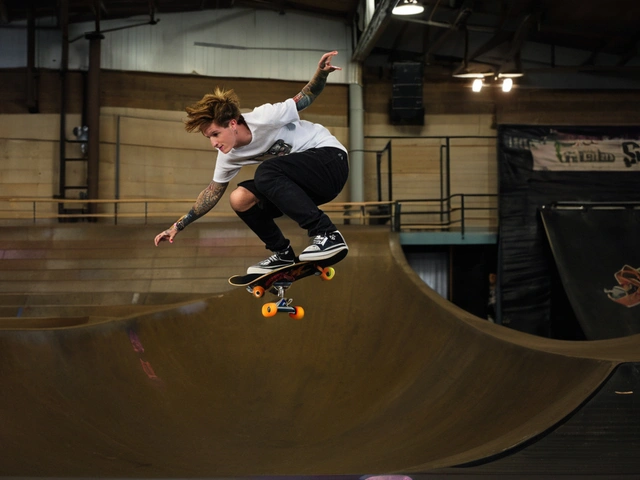
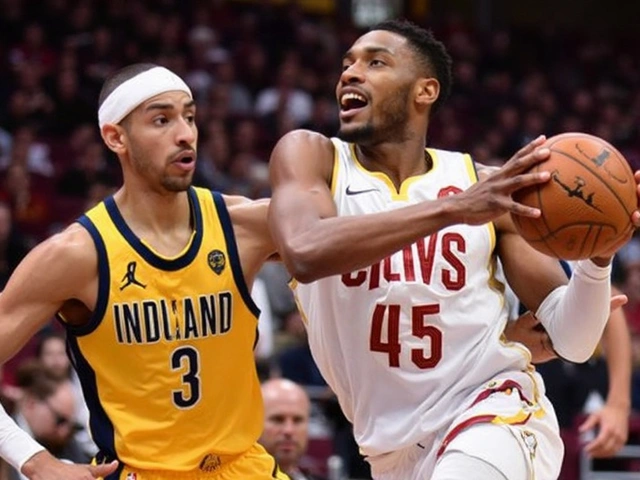
Deborah Canavan
November 17, 2025 AT 08:52Man, I love how they just locked down the whole camp like it's a top-secret mission. No leaks, no drama, just pure focus. That's the kind of discipline you need when you're trying to win a tournament on home soil. Not trying to flex, just trying to win. Respect.
And 35k tickets for a friendly? That's not just fandom, that's faith. People believe this team can do something special.
Joshua Johnston
November 19, 2025 AT 04:15They’re not preparing for a match. They’re preparing for a revolution. Every pass, every drill, every silent moment in Maâmora - it’s all building something bigger than football. This isn’t about tactics. It’s about identity. And Morocco’s got it.
Shelby Hale
November 19, 2025 AT 06:28Oh please. "Quiet before the storm"? More like a PR stunt wrapped in mystique. They’re scared. Scared that if people see too much, they’ll realize half the squad is on ice and the midfield is held together by duct tape and hope. 15 minutes? That’s not discipline - that’s damage control.
Jeffrey Frey
November 20, 2025 AT 16:39They’re hiding something. Always is. Look at how fast the tickets sold - too fast. Probably sold to bots. And why no Uganda date? Because they’re already planning the next lie. Regragui’s not a coach, he’s a cult leader with a clipboard and a Netflix doc deal in the works. 🤫👀
Don McBrien
November 22, 2025 AT 08:53Just watching the clips from Maâmora - the way they’re moving together, the silence between drills, the way the younger guys look at the veterans… that’s chemistry you can’t coach. That’s family. And that’s why this team’s gonna shock the continent.
Don’t overthink it. Just believe.
Jeremy Ramsey
November 22, 2025 AT 23:15Y’all act like this is some deep strategy session. Nah. It’s just a team trying to get their heads right. No cameras, no noise, no social media noise - just sweat, silence, and a whole lotta coffee. That’s what champions do. Not talk. Do.
Also, Mozambique? Yeah, they’re not a powerhouse. But you don’t disrespect any opponent on home soil. That’s just respect.
ANGEL ROBINSON
November 23, 2025 AT 03:35There’s a deeper truth here that’s being missed. The real victory isn’t winning the Cup - it’s that 35,000 people showed up for a friendly without knowing who’s starting, without knowing if the captain’s fit, without knowing anything - and they still came. That’s not fandom. That’s belonging.
For decades, Moroccan players were exported like commodities. Now, the nation is reclaiming its own identity through this team. Regragui isn’t just coaching players - he’s stitching a national narrative together with sweat and discipline.
This is what happens when a country stops outsourcing its pride and starts building it from the ground up. Maâmora isn’t a training ground. It’s a cathedral. And Tangier? That’s the pulpit.
People think football is entertainment. But when a whole nation holds its breath for 15 minutes of training? That’s ritual. That’s religion. And we’re all just witnesses.
Kerry Keane
November 24, 2025 AT 18:27the way they just shut it down after 15 min is so chill like why show everyone everything its not a concert its a team trying to get better
also who even is starting at cb idk but i trust it
Sara Reese
November 26, 2025 AT 01:53Oh wow, so now secrecy equals genius? That’s the same logic used by every failed regime that claimed "strategic silence" while their economy collapsed. You don’t build champions by hiding - you build them by evolving. And if they’re hiding injuries, they’re not preparing - they’re gambling.
Also, "symbol"? Please. It’s a football team. Not a TED Talk.
Henry Huynh
November 26, 2025 AT 14:0635k tickets for a friendly against mozambique?? bro that’s wild
imagine if they sold out a game against france like that
Thomas Rosser
November 27, 2025 AT 22:37Let me guess - the "secret" tactics are just 4-2-3-1 with extra pressing. Groundbreaking. 🤡
And the "quiet before the storm"? That’s just the sound of PR people deleting draft tweets about injuries. 15 minutes? More like 15 minutes of them trying to hide the fact that Hakimi’s still limping and the keeper’s got a cold.
They’re not preparing. They’re panicking. And the fans? They’re the ones who bought the hype. 😏
Ed Thompson
November 29, 2025 AT 22:23Maâmora is the secret sauce. No distractions, no noise, just high-octane recovery protocols, neuromuscular drills, and tactical micro-sessions. This isn’t football - it’s elite performance engineering. They’re not just training bodies, they’re optimizing minds. The data they’re collecting right now? It’s gonna make every other AFCON team look like they’re playing in the 90s.
And that sold-out crowd? That’s the market validating the product before launch. This ain’t a friendly. It’s a soft opening for a continental takeover.
Richie Cristim
December 1, 2025 AT 19:20why no uganda date yet seems sus like did they cancel it or what
also who is playing cb idk but i hope its not that guy from rennes
Elliott martin
December 3, 2025 AT 00:00just thinking about how quiet that place must be at dawn when the first guys show up to run alone
no one watching no one recording just feet on grass and breath in the cold
that’s when the real work starts